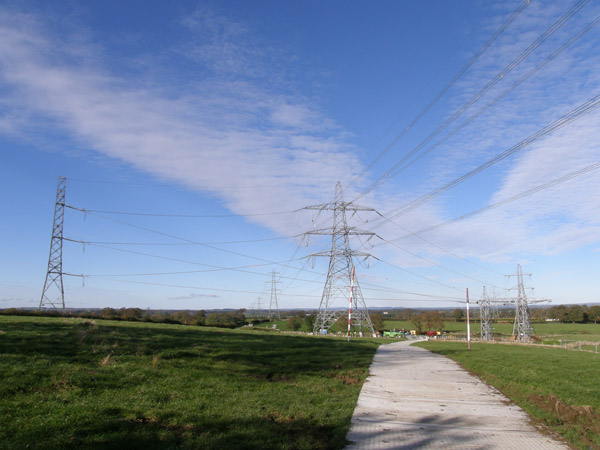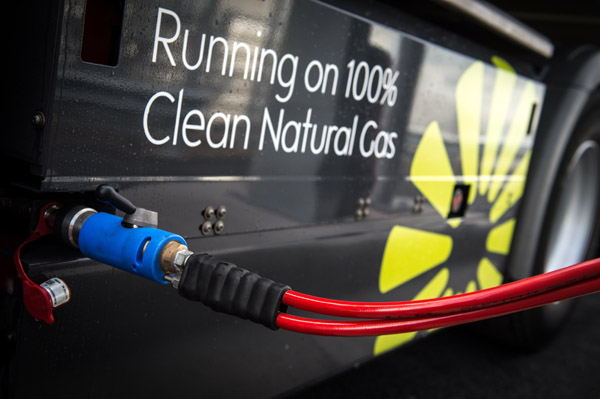 |
|
National Grid gas distribution business [Provided to China Daily] |
China's reported interest in acquiring a controlling stake in British power supplier National Grid's gas distribution business grabbed the headlines but analysts say the profitability of any deal will depend on whether the Chinese consortium can go beyond investing to become the operator as well.
Unlike a financial investor, the operator of such a strategically important entity would be able to recoup consistent returns from the power distribution process, and not just in the form of dividends and capital appreciation.
As the operator, Chinese participants would improve their reputations and be better placed to win similar contracts in other international markets, something that is particularly significant in the context of China's ambitions to lead infrastructure development among the Belt and Road countries.
The Chinese consortium seeking to gain a stake in the National Grid's gas distribution business is said to include China's State-owned utility company China Gas, and Chinese conglomerate Fosun.
While the National Grid has refused to identify any bidders, the FT reported the presence of the Chinese consortium and named its participants, citing advising bankers from Goldman Sachs as a source.
The gas distribution network, which is valued at an estimated 11 billion pounds ($14.3 billion; 12.8 billion euros), serves 10.9 million homes and businesses nationwide. National Grid will sell 51 percent and become the minority shareholder.
The potential deal follows heightened attention on Chinese investment following Beijing's partial funding of the 18-billion-pound nuclear power plant set to be built at Hinkley Point by France's EDF.
The Hinkley Point project and interest from China in the National Grid point to a trend of China internationalizing its infrastructure and utility sector strengths, with the UK as a first step toward selling in other developed markets.
China's desire to prove its infrastructure strength in the UK's rigorously regulated market coincides with the UK's need to upgrade its infrastructure, which will require help from additional foreign capital after existing infrastructure funding from the EU falls post Brexit.
National Grid first announced the planned sale of its gas distribution network in 2015 as an effort to return some cash returns to its investors and reinvest in higher-return assets.
In 2015, National Grid Chief Executive Steve Holliday called the gas distribution business "a good business, but a mature business", suggesting the disposal would help the company reach the higher end of its target to deliver 5 to 7 percent asset growth a year.
Such a statement implies the power distribution business is an investment with little risk that is suitable for long-term investment, and a good opportunity for foreign investors to familiarize themselves with the UK market.
Danae Kyriakopoulou, head of research at the think tank Official Monetary and Financial Institutions Forum (OMFIF), said the level of returns for China Gas will depend partly "on whether the deal extends to distribution rights on top of financial ownership" because acquiring distribution rights would lower the risk and allow China Gas to bring more Chinese supply chains into the operation.
National Grid is yet to say whether the responsibilities for operations will be transferred to the new majority stake owner. Its current proposal to transfer existing gas distribution licenses to a new subsidiary company that will be put in charge of the distribution task is awaiting UK government approval.
The likelihood of China Gas or other firms that win the bid ultimately participating in operations is not yet known, but the presence of utility firms as bidders – including China Gas and Singapore Power – point to such a possibility.
Other bidders, mainly pension funds and sovereign wealth funds, are likely to be eyeing long-term stable financial gains.
Paul Doris, a partner with the law firm Watson, Farley & Williams, said China Gas could gain a long-term investment in an important part of the UK's infrastructure that produces stable index-linked returns and yields millions of pounds in dividends annually.
Doris said the ability of China Gas to source financing for the deal, its scale and experience in operating target assets are among its advantages. In addition, UK and European markets' increasing familiarity with Chinese conglomerates and State-backed entities also help.
The boost in the reputations of Chinese infrastructure firms participating in the UK market could help them to grow in European economies, something Kyriakopoulou said is increasingly significant from a strategic perspective, although tight fiscal policies could mean investments may not start coming through until a few years' time.
"This gives Chinese investors a critical window of opportunity to build a reputation with investments in the UK, so that they are ready to bid for other European projects when the need and financing capacity arises for them," she said.
 |
|
National Grid gas distribution business [Provided to China Daily] |
What can China Gas learn from Hinkley Point?
China Gas and Fosun's reported bid for the National Grid's gas distribution business came weeks after the UK's new government led by Prime Minister Theresa May gave the green light to Hinkley Point, the EDF-led 18-billion-pound nuclear project that has a Chinese financial contribution.
Despite the approval, and Chinese investor China General Nuclear Corp's statement welcoming the decision, additional conditions and frameworks that the UK government announced alongside the Hinkley Point decision suggest a subtle tightening of the UK's grip regarding foreign participation in its infrastructure sector.
Such a change in government sentiment would give cause for concern, not just for CGN's plans for Bradwell, but also the bid from China Gas for the National Grid's gas distribution business and other potential Chinese investment in the UK's infrastructure sector, including High Speed 2, the UK's new fast train project aimed at better linking London with Manchester. That project, set to be completed by 2033, has already attracted Chinese investors' interest.
The new legal framework for future foreign investment in the UK's critical infrastructure will "ensure that the full implications of foreign ownership are scrutinized for the purposes of national security", and that the government will hold a golden share in future infrastructure projects that have foreign investment, giving it important sway over decisions.
The previous British government, led by David Cameron, never mentioned the need for the British government to hold an equity stake in infrastructure projects, nor did it raise the topic of scrutinizing foreign investment for national security purposes.
Andrew Shepherd, senior energy and infrastructure analyst at BMI Research, said May is "attempting to find some middle ground" by introducing a new framework that allows China to make its planned investment in Hinkley Point but that means future nuclear projects will see the UK government having "more oversight than if it was a purely private sector" project.
British media has reported that May's government is more concerned about Chinese investment because of comments from critics such as Nick Timothy, May's joint chief of staff, who was quoted by The Guardian last year as saying China could "build weaknesses into computer systems (at Hinkley Point) which will allow them to shut down Britain's energy production at will".
"May does not appear to be as enthusiastic about unfettered Chinese investment as David Cameron and (ex-chancellor) George Osborne. She does, however, want to demonstrate that the UK is open to foreign investment," Shepherd said.
The new framework could hamper future Chinese investment in the UK's nuclear sector, in particular the proposed Bradwell project that is set to use Chinese technology and have CGN as the majority stakeholder.
Within the Hinkley Point announcement, the UK government also stated it plans to review the Enterprise Act 2002 with a view to considering the inclusion of infrastructure as a new sector in which government ministers can intervene, where appropriate.
"It seems likely that the UK government will scrutinise bids for critical infrastructure projects from foreign investors, especially foreign state-backed entities and sovereign wealth funds, more closely in the future, particularly where they seek to operate the infrastructure assets in question," said Doris.